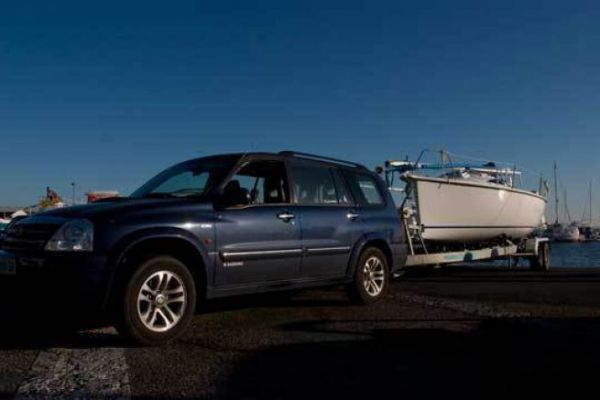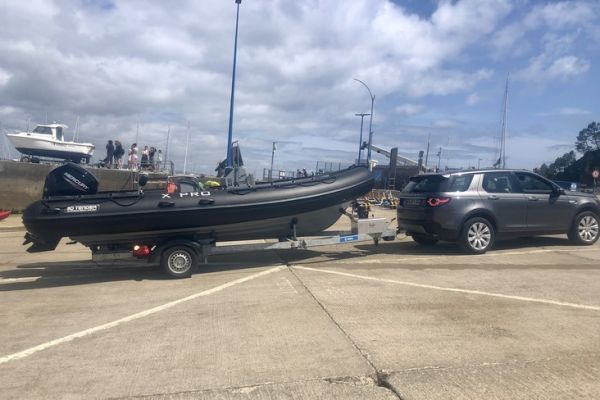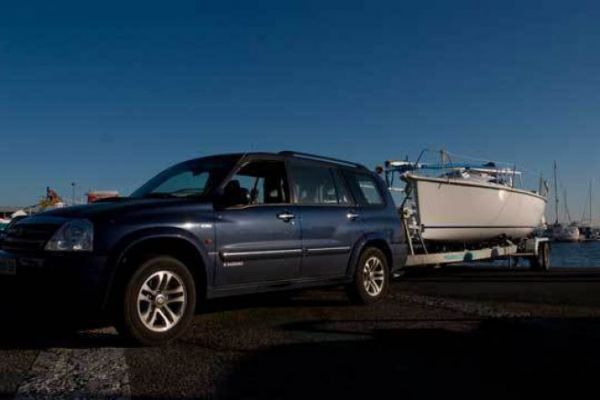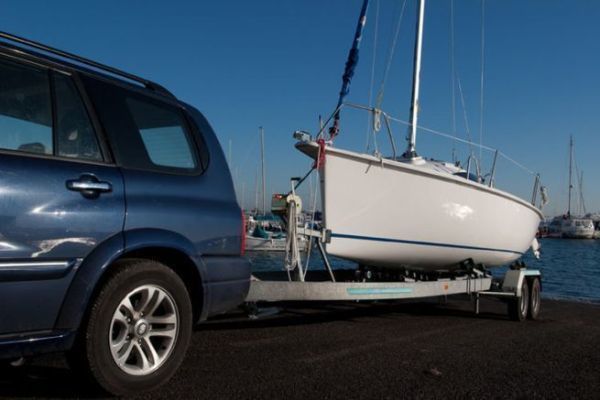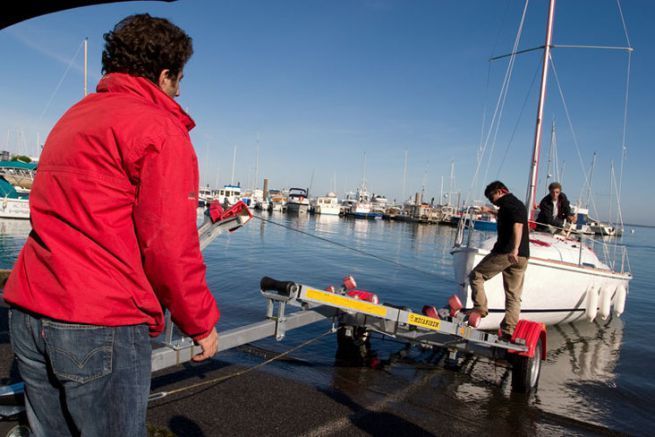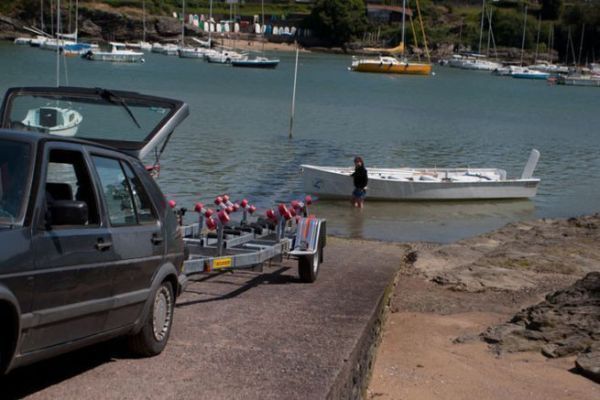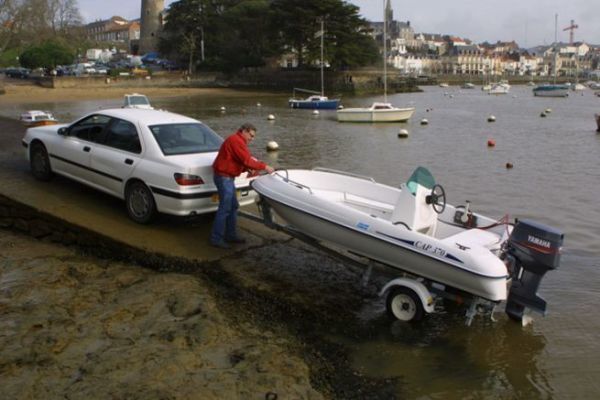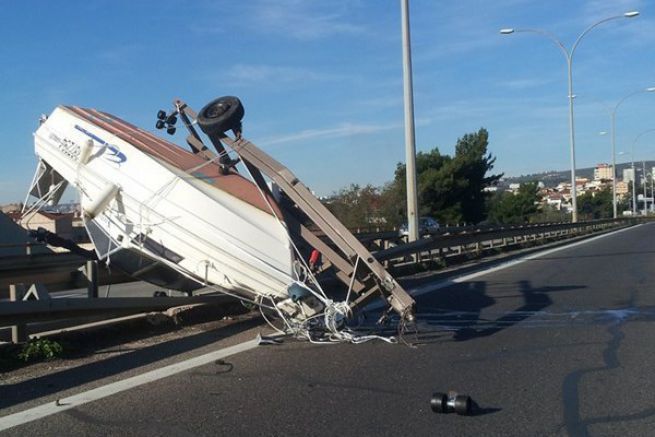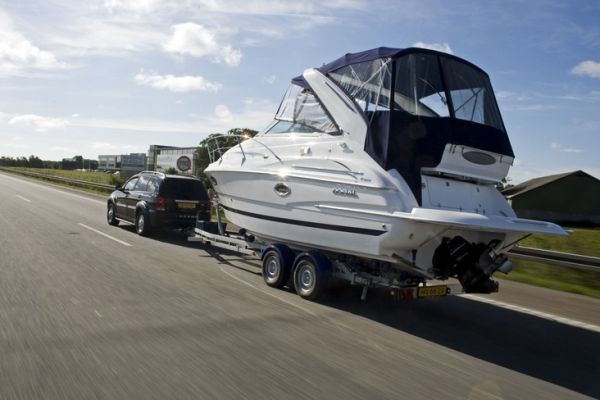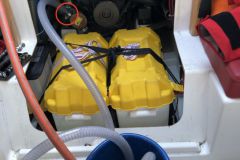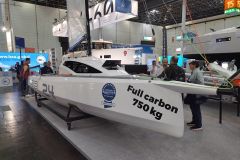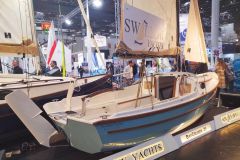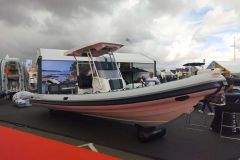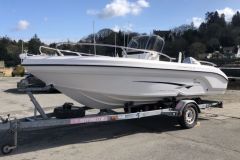Towing a boat on its trailer is by far the biggest risk factor in accidents involving transportable boats, whether sailboats or motorboats. Jean-Louis Dalloz, president of AS Maraudeur, shares his experience of towing his boats.
NB: The photos are there to illustrate the subject, but do not correspond to our reader's boats.
Story from a Bateaux.com reader
I wanted to share with you my experience of towing a boat.
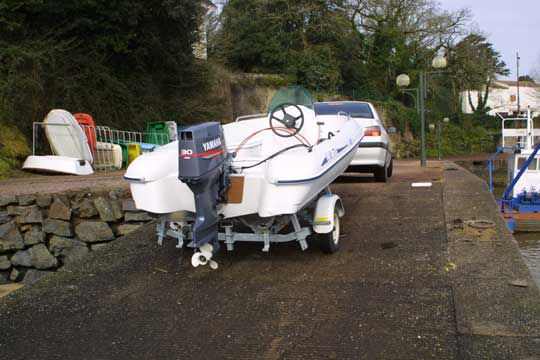
I've been an enthusiast of the small transportable sailboat for over 40 years, and must be on my twelfth unit... One day, while towing a brand-new Cap Corse (5.75 m and 550 kg), it went off violently on the freeway.
Not panicking, I managed to regain control and narrowly escape disaster. I wanted to understand the reason for this more than worrying situation, so that I could implement corrective solutions. As a mechanical engineer by training, I like to understand what's going on.
I made every possible adjustment: different trailer settings, drawbar load, tire pressure, fitting a stabilizer... But to no avail.
Having weighed my Cap Corse on return from vacation, it showed 1150 kg on the scale with its trailer and all the equipment on board. I then carefully weighed everything I unloaded, ending up by weighing the trailer alone.
The empty sailboat weighed in at 570 kg. Almost the gauge weight at the time, but more importantly, half the total weight I towed behind my car.
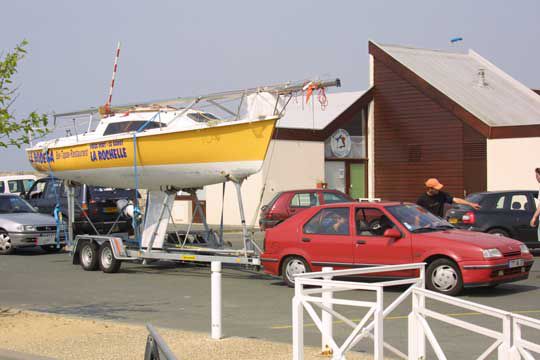
This was the start of a process of reflection that led me to find answers to the following questions:
Where does this weight difference come from?
- The manufacturer's weight is often underestimated.
- The advertised weight is often that of the well-built proto n°1. Subsequently, the construction is less rigorous and the sample is heavier.
- The boat is often equipped with options that are not included in the original weight (galley, equipment, upholstery, berths...).
- The same applies to the weight of the trailer. The same goes for the accessories, which are very heavy (especially the spare wheel and its support)
- Equipment carried on board the boat: Some equipment is essential (anchor, safety equipment, etc.), while others are virtually indispensable (engine, fuel tank, fenders, sails, etc.), not forgetting comfort equipment for coastal cruising (mattresses, cushions, kitchen equipment, tools, personal effects, etc.).
- Additional personal furnishings (coats of paint, antifouling, anti-slip, etc.).
- Finally, don't forget that over time, the boat becomes heavier (!!!) with the addition of small fittings and repairs, and it's not impossible for the buoyancy foam to retain moisture.
Why does the trailer yaw?
In physics, this phenomenon can be likened to resonance: it appears suddenly, as does its cessation.
If the total weight of the towed vehicle (trailer + boat) is similar to the unladen weight of the towing vehicle, the phenomenon manifests itself at around 90 km/h. This is one of the reasons for the speed limit for trailers on certain stretches of freeway (represented on the road sign by a caravan).
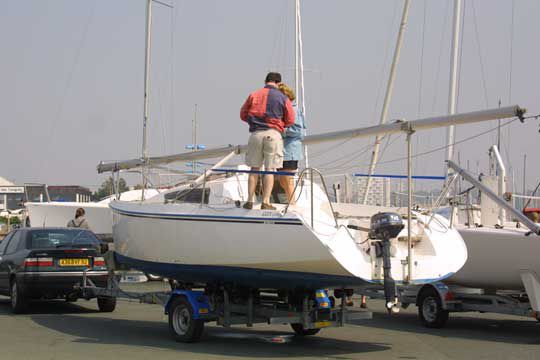
Something to corroborate my assertion:
I had a Microsail (5.50 m and 600 kg). The trailer with the boat weighed 1,200 kg. My car was a Peugeot 405 Diesel (similar weight). On the road, the trailer would start to yaw at 90 km/h. When the boat and trailer were sold, the new owner came to collect it with a Renault Espace weighing 1,600 kg.
Returning at a steady speed (between 110 and 120 km/h), the trailer never yawed... The car was heavier than the trailer + boat combination.
Is the quality of the trailer to blame?
The rigidity of the trailer is an additional factor in roadholding. A trailer designed for a GVW (Gross Vehicle Weight) of 500 kg will deform significantly if it carries twice that. The same applies to its suspensions, which will then be undersized. Likewise for the brakes, which will be insufficient.
That's why it's best to choose a trailer that's rather oversized to ensure good roadholding.
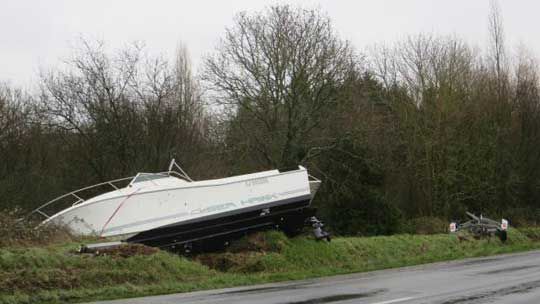
What can we conclude from this experience?
I've written these lines as a preventive measure, to share my experience with owners of small transportable boats. Too often, the reality of things and good advice to the customer are overshadowed by the commercial side of trailer sales (often for price reasons). Please be vigilant.
Jean-Louis Dalloz president of AS Maraudeur
